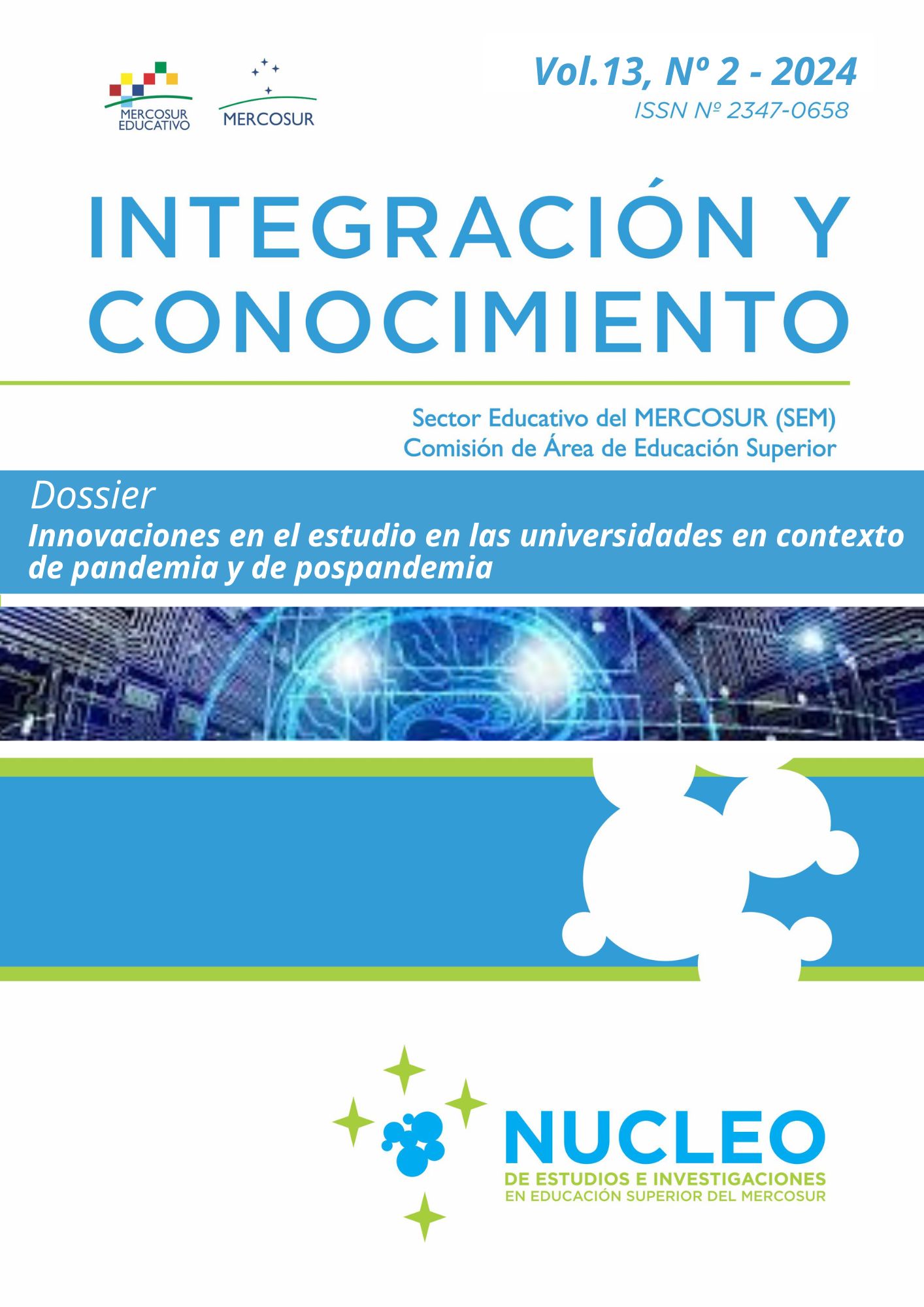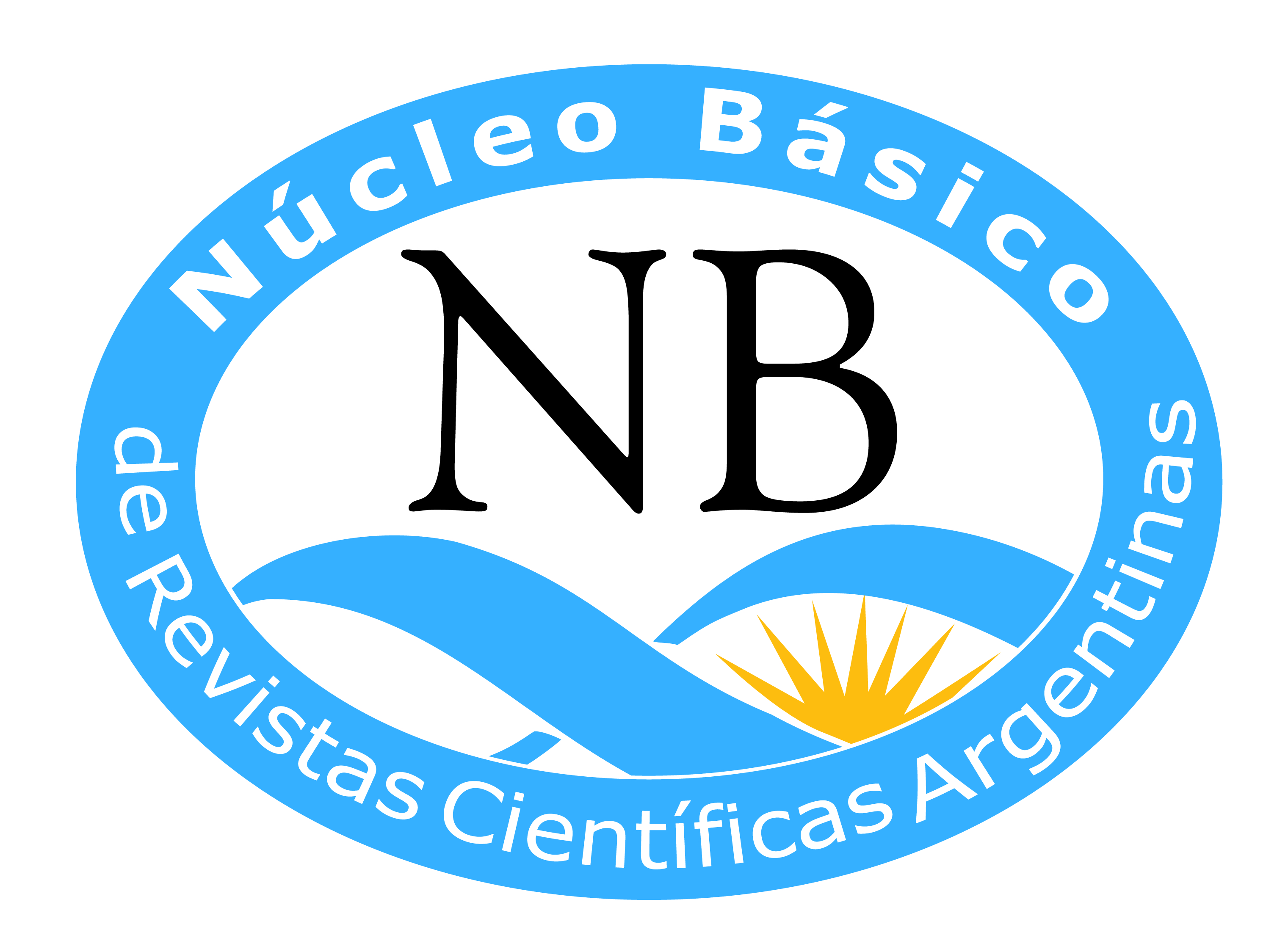POLICIES IN HUMAN AND SOCIAL SCIENCES
Keywords:
Doctors; Policies; TrainingAbstract
The objective of this article is to characterize the changes in doctoral training policies at the national level since the beginning of the new century, paying particular attention to the field of Human and Social Sciences in the Technical Scientific Research Council (CONICET). The article looks at the way in which researcher training policies were developed, the tensions that arose within the organization and the changes that occurred with changes in government at the national level. The period that began in 2002 redefines the main guidelines in the Science and Technology sector at the national level, marking the beginning of a new cycle for the scientific field in the country, but particularly for the doctoral level. To do this, firstly, the state of the situation is analyzed after the political and economic crisis that Argentina suffered at the end of 2001, and secondly, the measures taken from 2002 to 2018. The empirical corpus of this article is made up of secondary statistical data and reports generated by public Science and Technology organizations (CONICET and CIC) and semi-structured interviews carried out within the framework of this research with public officials.
Downloads
References
Albornoz, M. y Gordon, A. (2011). La política de ciencia y tecnología en Argentina desde la recuperación de la democracia (1983-2009). En M. Albornoz y J. Sebastián. (Eds.), Trayectorias de las políticas científicas y universitarias de Argentina y España, Madrid, CSIC.
Aliaga, J. (2019). Ciencia y tecnología en la Argentina 2015-2019: panorama del ajuste neoliberal. Revista Ciencia Tecnología y Política, 2(3) pp-pp..
Basualdo, E. (2011). Sistema político y modelo de acumulación. Tres ensayos sobre la Argentina actual. Buenos Aires, Cara o Ceca.
Bekerman, F. (2016). El desarrollo de la investigación científica en Argentina desde 1950: entre las universidades nacionales y el Consejo Nacional de Investigaciones Científicas y Técnicas. Revista Iberoamérica de Educación Superior,VII(18), 3-23.
Bekerman, F. (2018). La investigación científica argentina en dictadura. Transferencias y desplazamientos de recursos (1974-1986). Mendoza, Argentina: EDIUNC.
Brugaletta, F., González Canosa, M., Starcenbaum, M., Welschinger, N. (Comps.) (2019). La política científica en disputa: diagnósticos y propuestas frente a su reorientación regresiva. Buenos Aires, Argentina: Ediciones de la Fahce
Busto Tarelli, T. (2010). Formación de recursos humanos en Argentina: análisis de la política de becas de posgrado. En: O. Barsky., y M. Dávila. (Coords.), Las carreras de posgrado en la Argentina y su evaluación. 1ra edición. (pp-pp. xx-xx). Buenos Aires, Argentina: Editorial Teseo.
Redacción Clarín. (22 de diciembre de 2016). Recorte en el Conicet: Polémica por las investigaciones de Star Wars, Anteojito y el Rey León. Clarín. https://www.clarin.com/sociedad/recorte-conicet-polemica-investigaciones-star-wars-anteojito-rey-leon_0_ryqI_wt4e.html
De la Fare, M., Rovelli, L. y Unzué, M. (2021) Formación e inserción de personas doctoradas en ciencias sociales y humanas en América Latina. Revista Mexicana de Investigación Educativa, 26(91), 999-1005.
Filmus, D. (2019). La situación de la ciencia y tecnología en Argentina. Realidad y desafíos. Fundación Carolina.
Germani, A. A. (2004). Gino Germani. Del antifascismo a la sociología. Buenos Aires. Taurus.
Girbal, N. (2010). Organización y gobernanza de la ciencia y tecnología. En: M. Albornoz., y J. A. López Cerezo. (Edits.), Ciencia, tecnología y universidad en Iberoamericana. 1ª ed. (pp. xx-xx) Buenos Aires. Eudeba.
Hurtado, D. (2010). La Ciencia Argentina. Un proyecto inconcluso: 1930-2000. Buenos Aires: Edhasa.
Jeppesen, C., Goldberg, M., Szpeiner, A., Rodriguez Gauna, M., Misiac, R. (2016). La formación de doctores en la Argentina: avances y desafíos desde la perspectiva CONICET.; Universidad Nacional de Tres de Febrero. Revista Argentina de Educación Superior, 8(12) 6, 149-173. Recuperado de https://ri.conicet.gov.ar/handle/11336/106727
Kreimer, P. (2006). ¿Dependientes o integrados? La ciencia latinoamericana y la nueva división internacional del trabajo. Nómadas (Col), (24) abril, 2006, 199-212. Recuperado de https://www.redalyc.org/pdf/1051/105116598017.pdf
La Internet Online. (21 de diciembre de 2016). Las 20 peores ‘investigaciones científicas’ del CONICET.
La Nación. (21 de diciembre de 2016). Mundo Conicet: La polémica por los recortes de fondos y las críticas hacia el organismo colmaron Twitter. La Nación. https://www.lanacion.com.ar/sociedad/conicet-nid1969157/
OCDE. (2020). Education at a glance: Educational attainment and labour-force status. OECD Education Statistics.
Macarian, A. (6 de diciembre de2020). Barañao: Ningún país con 30% de pobres aumenta la cantidad de investigadores. Diario Perfil. https://www.perfil.com/noticias/politica/baranao-ningun-pais-con-30-de-pobres-aumenta-la-cantidad-de-investigadores.phtml
Piovani, J. I. (2019). Sobre la utilidad de las ciencias sociales en tiempos de neoliberalismo y posverdad. En F. Brugaletta., M. González Canosa., M. Starcenbaum., y N. Welschinger.(Comps.), La política científica en disputa: diagnósticos y propuestas frente a su reorientación regresiva. Universidad Nacional de La Plata. Facultad de Humanidades y Ciencias de la Educación; Ciudad Autónoma de Buenos Aires: CLACSO. (Andamios, 5 Perspectivas).
Ravela, C. (2019). Eduardo Charreau en el CONICET. En E. J. Baran., y A. J. Parodi. Jornada de homenaje al Dr. Eduardo H. Charreau.- 1a ed. Ciudad Autónoma de Buenos Aires: ANCEFN - Academia Nacional de Ciencias Exactas, Físicas y Naturales, 2019. Libro digital, PDF - (Publicaciones científicas; 15).
Svampa, F. y Aguiar, D. (2019). Los consejos de investigaciones y la tensión entre culturas burocráticas y académicas. El CONICET entre 1983-1989. Revista Ciencia, Docencia y Tecnología, 30 (59), Noviembre – Abril.1851-1716. Recuperado de
Unzué, M. (2011). Claroscuros del desarrollo de los posgrados en Argentina. Sociedad. Revista de la Facultad de Ciencias Sociales de la Universidad de Buenos Aires, (29/30). pp-pp.
Unzué, M., Rovelli, L. (26 al 28 de julio de 2017). Trayectorias y encrucijadas en las políticas científicas y universitarias recientes de formación de doctores: Un estudio de casos en Argentina y Brasil. 9° Congreso Latinoamericano de Ciencia Política, Montevideo, Uruguay.
Varesi, G. (2018). Apuntes para un balance del neo-desarrollismo en Argentina (2002-2015): alcances, límites y contradicciones. En Actas. Universidad Nacional de La Plata. Facultad de Humanidades y Ciencias de la Educación. Departamento de Sociología.
Downloads
Published
Issue
Section
License
Copyright (c) 2024 Integración y Conocimiento

This work is licensed under a Creative Commons Attribution-NonCommercial-ShareAlike 4.0 International License.
Authors who have publications with this journal accept the following terms:
a. Authors shall retain their copyright and guarantee the journal the right of first publication of their work, which shall simultaneously be subject to the Creative Commons License of Recognition which allows third parties to share the work as long as its author is indicated and its first publication is this journal.
b. Authors may adopt other non-exclusive licensing agreements for the distribution of the published version of the work (e.g., depositing it in an institutional telematic archive or publishing it in a monographic volume) provided that the initial publication in this journal is indicated.
c. Authors are allowed and encouraged to disseminate their work via the Internet (e.g. in institutional telematic archives or on their website) after publication of the article, which may lead to interesting exchanges and increased citations of the published work. (See The Effect of Open Access).



